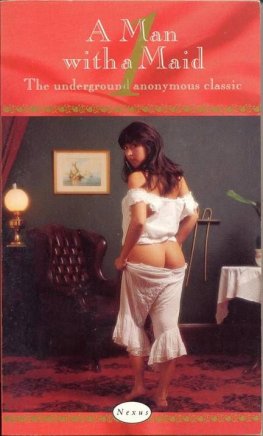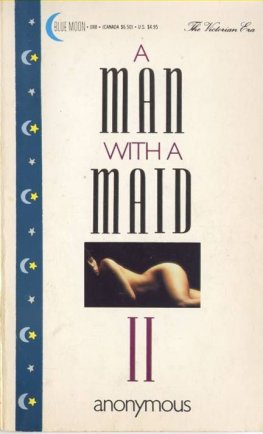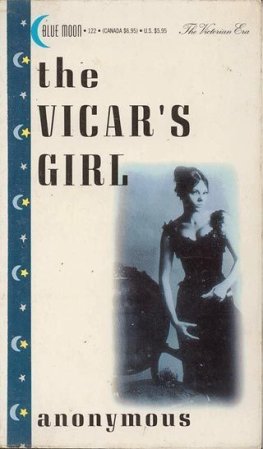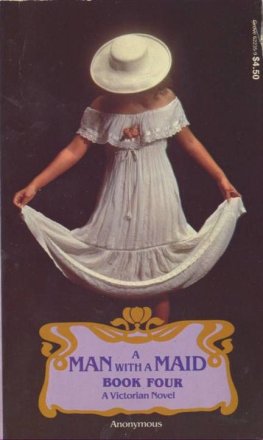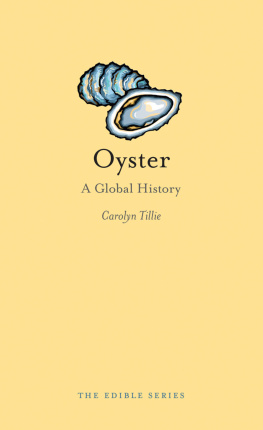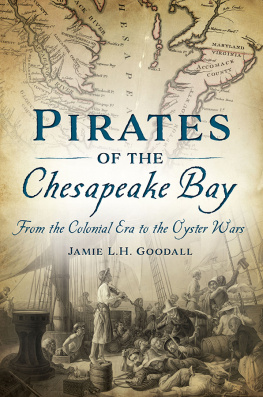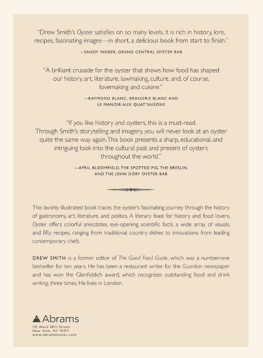Anonymous - The Oyster, volume1 and 2
Here you can read online Anonymous - The Oyster, volume1 and 2 full text of the book (entire story) in english for free. Download pdf and epub, get meaning, cover and reviews about this ebook. genre: Romance novel. Description of the work, (preface) as well as reviews are available. Best literature library LitArk.com created for fans of good reading and offers a wide selection of genres:
Romance novel
Science fiction
Adventure
Detective
Science
History
Home and family
Prose
Art
Politics
Computer
Non-fiction
Religion
Business
Children
Humor
Choose a favorite category and find really read worthwhile books. Enjoy immersion in the world of imagination, feel the emotions of the characters or learn something new for yourself, make an fascinating discovery.

- Book:The Oyster, volume1 and 2
- Author:
- Genre:
- Rating:5 / 5
- Favourites:Add to favourites
- Your mark:
- 100
- 1
- 2
- 3
- 4
- 5
The Oyster, volume1 and 2: summary, description and annotation
We offer to read an annotation, description, summary or preface (depends on what the author of the book "The Oyster, volume1 and 2" wrote himself). If you haven't found the necessary information about the book — write in the comments, we will try to find it.
The Oyster, volume1 and 2 — read online for free the complete book (whole text) full work
Below is the text of the book, divided by pages. System saving the place of the last page read, allows you to conveniently read the book "The Oyster, volume1 and 2" online for free, without having to search again every time where you left off. Put a bookmark, and you can go to the page where you finished reading at any time.
Font size:
Interval:
Bookmark:
Anonymous
The Oyster, volume1 and 2
PREFACE TO THE FIRST EDITION
What is it that causes my lord to smack his chops in that wanton, lecherous manner, as he is sauntering up and down Bond Street, with his glass in hand, to watch the ladies getting in and out of their carriages? And what is it that draws together such vast crowds of the holiday gentry at Easter and Whitsuntide to see the merry rose-faced lassies running down the hill in Greenwich Park? What is it causes such a roar of laughter when a merry girl happens to overset in her career and kick her heels in the air? Lastly, as the parsons all say, what is it that makes the theatrical ballet so popular?
There is a magic in the sight of a female leg, which is hardly in the power of mere language to describe, for to be conceived it must be felt.
Most of my readers will be acquainted from experience with that magic which emanates from the sight of a pretty leg, a delicate ankle and a well-proportioned calf.
Your editor never sees a pretty leg but feels certain unutterable emotions within him, which as the poet puts it:
'Should some fair youth, the charming sight explore,
In rapture he'll gaze, and wish for something more!'
The Editor of The Oyster
Thus in the zenith of my lust I reign;
I eat to swive, and swive to eat again;
Let other monarchs, who their sceptres bear
To keep their subjects less in love than fear
Be salves to crowns, my nation shall be free;
My pintle only shall my sceptre be,
My laws shall act more pleasure than command,
And with my prick I'll govern all the land.
Bolloxinion, King of Sodom or The Quintessence of Debauchery
The Earl of Rochester (1647-1680)A FOND RECOLLECTION OF YOUTHFUL DAYS
By
SIR ANDREW SCOTTCHAPTER ONE
WHEN EVEN now I awaken in the still darkness of the night with a sudden start that appears to possess no apparent physical origin, when I am driven mad with passion and feel my hands stealing down to caress my ramrod-hard pego, then I know that the sweet dreams fast vanishing, alas, into the shelter of oblivion must have contained at least a fragment of fantasy about my darling Lucy, or one of the other young ladies who helped make my formative years so pleasurable during those dear days almost beyond recall.
I refer, my friendly reader, to the times spent as a schoolboy at the Nottsgrove Academy for Young Gentlemen situated near the pleasant hamlet of Arkley, deep in the wilds of rural Hertfordshire. Perhaps my first essay upon the delights of studying at that most progressive academy, penned for a previous issue of our esteemed journal, is not unknown to you. (See The Pearl, Volume 3.) Though the years have passed by, the pictures of Lucy will never vanish from my brain: her dear face next to mine, close enough for me to see her lips parting with desire; her ripe body touching mine, setting me on fire with carnal yearnings, clasping me with pleading urgency.
Ah, sweet recollections of lying naked on crushed and rumpled sheets, watching the early morning sunlight caress my sated, sleeping lover, listening to the muted sounds beyond the boudoir as the countryside wakes to another morn. Alas, often when old men meet together, many are full of woes. They hanker still for the joys of youth, remembering how in their spring years they would besport themselves with wine, women and song, all hours of the day and night. Now, in the autumn of their time upon this planet, they think it is a great deprivation that those times are way behind them. Life was good then, they moan, whereas now they feel that they hardly live at all. I do not agree with this pessimistic outlook, for old age has the advantage of offering more time for contemplation and relaxation. I look back with much enjoyment upon my memories of a boisterous youth, and utterly refuse to allow my old age to be crabbed, for my recollections are to me as a fine summer's day of much sunshine and few clouds.
One further word before I open my store of the times that have passed. Hopefully we shall see the day when science and not theology will become the arbiter of personal morality; when pure reason, unfettered by the bumbling antics of well-meaning but ignorant clergymen, bound and limited by the dogmas of preconception, will seek and find sane and sensible standards of civilised conduct between the sexes.
For I hold that there is no distinction to be found between the sexual needs of the married and unmarried, as a young man's passion does not suddenly awaken at the moment of his betrothal. Nor are the desires of a widow permanently extinguished upon the death of her spouse. The number of predatory widows in London Society is proof enough, and the names of such ladies may be omitted here as they are well-known to all the many gentlemen who frequent the salons of Belgravia and Mayfair. So Lady Cecilia A-and Mrs Hester S-may, with others of their ilk, rest easy, as I do not propose revealing their secret lives in this manuscript.
Fortunately our century has produced, an abundance of publications proclaiming the delights of the body in all its forms. And now I offer my own journey down the lane of memory as a humble addition to those other memoirs penned by that group of lusty scribes who have built up such a fine stock of gallant literature.
Finally, I would add only this-no apology will be forthcoming from me for putting into print this highly charged erotic narrative, as I feel assured that every devotee of voluptuous reading will derive as much, or hopefully even more, pleasure than that afforded your humble author in the writing of this epistle. I would like to thank my old friend and mentor Sir Lionel T-, himself an Old Nottsgrovian, for allowing me the use of his fine library to compose this work, and I end this prologue with the wise words of Boccaccio:
'If in my tales there are a few words rather freer than suits the prudes, who weigh words more than deeds and take more pains to appear than to be good, I say I should no more be reproved for having written them than other folk are daily reproved for saying 'hole'. 'peg'. 'mortar'. sausage and like things.
'No corrupt mind ever understands words healthily. And just as such people do not enjoy virtuous words, so the well-disposed cannot be harmed by words somewhat less virtuous, any more than mud can sully sunlight or earthly filth the beauty of the skies.'
****Those of us fortunate enough to have studied under the wise and caring guidance of Doctor Simon White will always salute the achievements of this remarkable scholar whose main educational aim was to break the shackles that bind us to a false morality. He showed his pupils that in his learned opinion, throughout man's past, throughout all known civilisations of both East and West, there have always been conflicts between the desires of some and the imposed wills of others. Sometimes, one class has been in a minority, sometimes it has been the other; but the rule holds good and indeed, it seems but only yesterday that I was back in my favourite chair in the prefects' room at Nottsgrove Academy, listening with the other senior boys to our dear old headmaster espousing his theories of philosophy with that characteristic passion and lucidity that were hallmarks of his delivery of a lecture to us. I should say that he encouraged argument and never attempted to indoctrinate us against our wills. But I digress, so I shall take up again the Wands of memory to a day of excitement at Nottsgrove.
It was a lazy summer afternoon during my last term at Nottsgrove. The day's classes had ended and I was busily engaged in deciding what news to pen in my obligatory letter home (no excuses for the absence of such an epistle were ever allowed), when Doctor White entered the hallowed portals of the prefects' common room to pin up a notice of forthcoming sports fixtures upon the wall board.
Font size:
Interval:
Bookmark:
Similar books «The Oyster, volume1 and 2»
Look at similar books to The Oyster, volume1 and 2. We have selected literature similar in name and meaning in the hope of providing readers with more options to find new, interesting, not yet read works.
Discussion, reviews of the book The Oyster, volume1 and 2 and just readers' own opinions. Leave your comments, write what you think about the work, its meaning or the main characters. Specify what exactly you liked and what you didn't like, and why you think so.

